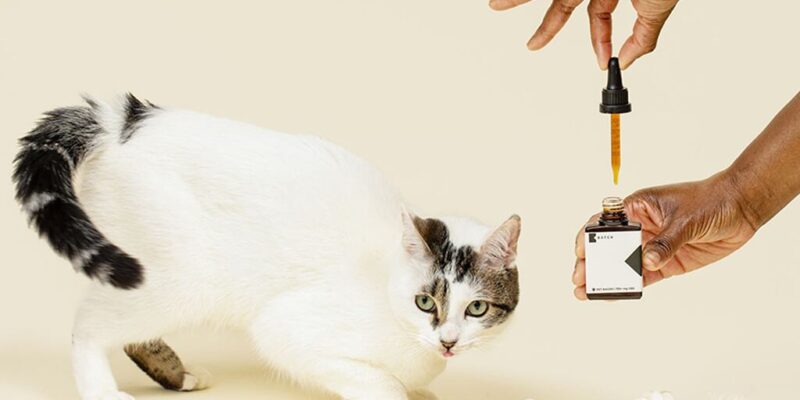CBD is short for cannabidiol Cannabis sativa plants its cousin tetrahydrocannabinol (THC), CBD will not cause intoxicating effects. CBD interacts indirectly with mammalian endocannabinoid systems, which help regulate various physiological processes from chronic pain to appetite. Emerging research in other mammals suggests regular CBD doses to more efficiently use its natural endocannabinoids.
Relieving occasional aches from daily cat antics
Between pouncing toys, climbing curtains, and wrestling with other furry friends, cats sure know how to live life on the edge. But as they mature, the same chronic joint overuse that leaves veteran athletes sore plagues aging kitties too. Arthritis is very prevalent, impacting upward of 60% of cats once they pass middle age. Pharmaceuticals like Meloxicam provide relief but also carry notable side effects with long-term use. This leaves concerned cat owners with few options for maintaining quality of life for fur babies struggling with stiff, painful joints. Exciting new science shows CBD strongly reduces inflammatory signals while dulling pain receptor activity as well. Daily microdoses in older cats appear to safely boost comfort without damaging side effects. For creaky cats facing limited treatment choices beyond “learn to live with it,” CBD oil represents a game-changing advancement.
Sparking appetites when illness, medications, or anxiety take hold
Between stressful vet visits, Digestive issues are also unfortunately common in cats, thanks to notoriously finicky appetites plus reactions to medications and stress. It’s agonizing for doting cat caregivers to coax a visibly unwell companion to eat adequate nutrition. Yet cats facing hospitalization or at-home convalescence require ample daily calories for recovery. This troubling catch-22 leaves both parties frustrated and distressed. However, research reveals CBD may unlock multiple appetite-boosting benefits ideal for cats with marginal hunger.
By interacting with specific neurotransmitters and enzymes influencing digestion, cbd for cats may relieve nausea while amplifying food enjoyment. For sick cats or those taking medications causing appetite loss as a side effect, this gentle cannabinoid represents a low-risk strategy with a high-impact potential to normalize eating habits. They are pet owners struggling to persuade ailing cats to eat report game-changing improvement in a food drive and daily intake with CBD supplementation. With better nourishment, recuperation follows.
Managing seizures when medications come up short
The scariest feline medical conditions, seizures often strike cats in the prime years of life without warning. Status epilepticus – prolonged, uncontrolled focal seizures quickly become life-threatening and require rapid veterinary intervention to manage. The despite expanding treatment options, at least 30% of affected cats demonstrate partial or complete drug resistance over time. Uncontrolled seizures devastate the quality of life for once-vibrant, active companions while heightening the risk of permanent neurological injury and other complications. Desperate caregivers with drug-resistant kitties face debilitating worry about the next seizure erupting, severely limiting any semblance of normality. It’s an emotionally and financially draining long-term prognosis.
Studies investigating CBD for managing drug-resistant epilepsy in humans display incredible success. Feline models mirror similar feats, with added CBD shrinking seizure frequency by up to 33% compared to placebo groups. Such remarkable improvements grant years more of safe, comfortable living. For CBD responder cats and their relieved humans, it’s the miracle they’ve desperately sought.

Comments